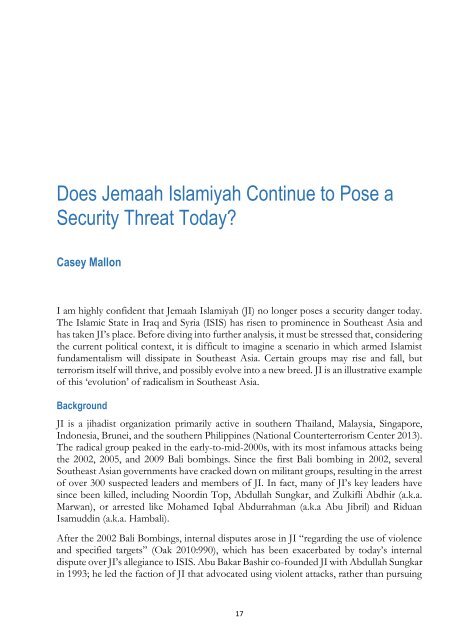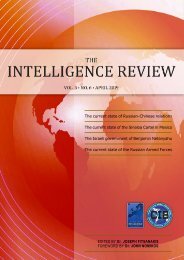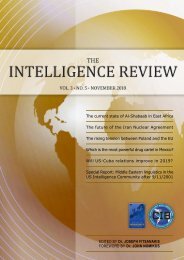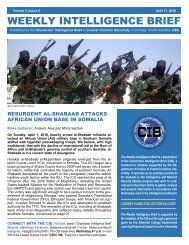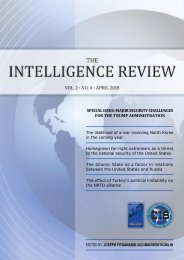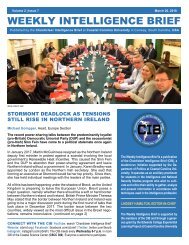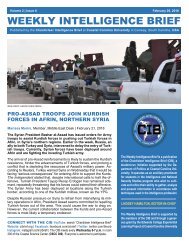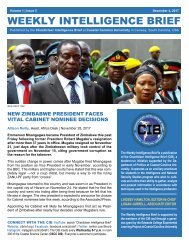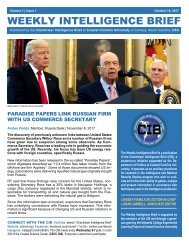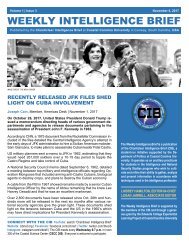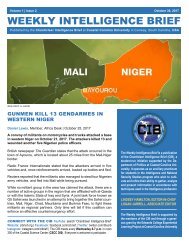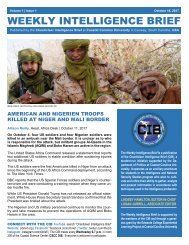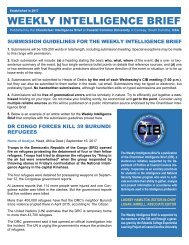The Intelligence Review | volume 1 | issue 2 |
This volume is the product of a collaboration between the European Intelligence Academy (EIA) and the Chanticleer Intelligence Brief (CIB), a student-run initiative supported by the Department of Politics at Coastal Carolina University in Conway, South Carolina, United States. Eleven CIB analysts tackle some of the most pressing and timely questions confronting intelligence observers today. Topics include the gun control debate in the United States, Russia’s involvement in the Syrian Civil War, the future of Kurdish nationalism, and the internal Palestinian dispute between Hamas and Fatah. Papers in this volume also examine the current state of Islamist extremism, and extrapolate on its future prospects in the Middle East, West Africa, the Lake Chad region, as well as in Southeast and Central Asia. CIB analysts propose carefully crafted and informed forecasts that outline future developments in some of the world's most unpredictable hot spots.
This volume is the product of a collaboration between the European Intelligence Academy (EIA) and the Chanticleer Intelligence Brief (CIB), a student-run initiative supported by the Department of Politics at Coastal Carolina University in Conway, South Carolina, United States. Eleven CIB analysts tackle some of the most pressing and timely questions confronting intelligence observers today. Topics include the gun control debate in the United States, Russia’s involvement in the Syrian Civil War, the future of Kurdish nationalism, and the internal Palestinian dispute between Hamas and Fatah. Papers in this volume also examine the current state of Islamist extremism, and extrapolate on its future prospects in the Middle East, West Africa, the Lake Chad region, as well as in Southeast and Central Asia. CIB analysts propose carefully crafted and informed forecasts that outline future developments in some of the world's most unpredictable hot spots.
- No tags were found...
You also want an ePaper? Increase the reach of your titles
YUMPU automatically turns print PDFs into web optimized ePapers that Google loves.
Does Jemaah Islamiyah Continue to Pose a<br />
Security Threat Today?<br />
Casey Mallon<br />
I am highly confident that Jemaah Islamiyah (JI) no longer poses a security danger today.<br />
<strong>The</strong> Islamic State in Iraq and Syria (ISIS) has risen to prominence in Southeast Asia and<br />
has taken JI’s place. Before diving into further analysis, it must be stressed that, considering<br />
the current political context, it is difficult to imagine a scenario in which armed Islamist<br />
fundamentalism will dissipate in Southeast Asia. Certain groups may rise and fall, but<br />
terrorism itself will thrive, and possibly evolve into a new breed. JI is an illustrative example<br />
of this ‘evolution’ of radicalism in Southeast Asia.<br />
Background<br />
JI is a jihadist organization primarily active in southern Thailand, Malaysia, Singapore,<br />
Indonesia, Brunei, and the southern Philippines (National Counterterrorism Center 2013).<br />
<strong>The</strong> radical group peaked in the early-to-mid-2000s, with its most infamous attacks being<br />
the 2002, 2005, and 2009 Bali bombings. Since the first Bali bombing in 2002, several<br />
Southeast Asian governments have cracked down on militant groups, resulting in the arrest<br />
of over 300 suspected leaders and members of JI. In fact, many of JI’s key leaders have<br />
since been killed, including Noordin Top, Abdullah Sungkar, and Zulkifli Abdhir (a.k.a.<br />
Marwan), or arrested like Mohamed Iqbal Abdurrahman (a.k.a Abu Jibril) and Riduan<br />
Isamuddin (a.k.a. Hambali).<br />
After the 2002 Bali Bombings, internal disputes arose in JI “regarding the use of violence<br />
and specified targets” (Oak 2010:990), which has been exacerbated by today’s internal<br />
dispute over JI’s allegiance to ISIS. Abu Bakar Bashir co-founded JI with Abdullah Sungkar<br />
in 1993; he led the faction of JI that advocated using violent attacks, rather than pursuing<br />
17


